
Alphabetical Menu
Chronological Menu
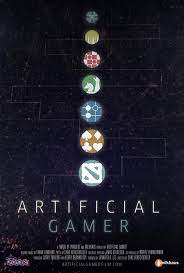
In Artificial Gamer focuses on the challenges of OpenAI, an AI research lab, that has 1 year to create an artificial intelligence bot that can defeat Dota 2 players at the 2018 Dota world championship known as The International. Director Chad Herschberger interviews many of the engineers of OpenAI who explain how AI works and the challenges that they face. It doesn't quite get into the nitty-gritty of coding, but it does explain the basics of how they use 0's and 1's and provide you with a general sense of how the bot works. The doc covers a lot of ground and includes a lot of technical terms, so there's a lot of insights and info for the audience to absorb. If you're familiar with and passionate about Dota 2, gaming or engineering, it'll be fascinating and illuminating to watch. Everyone else, though, might find it a bit exhausting and even confusing, so Artificial Gamer somewhat alienates them. There's not enough of a human story to engage the audience on an emotional, human level nor is there enough suspense during the competition or countdown to the 2018 championship. Why not allow the audience to get to know at least one or two of the engineers at OpenAI? They're clearly passionate about their work--there's no doubt about that--but the doc feels a bit cold, like artificial intelligence itself, by not getting to know any of them. A truly great documentary, like Spellbound, manages to entertain the audience while provoking them emotionally and intellectually at the same time. You don't need to be a fan of spelling bees to be engaged by Spellbound on any level. The same can be said about the documentary Science Fair. Those docs found some humor in their subject unlike this doc that could've used humor or a human story as a way to hook the audience more. Artificial Gamer at least succeeds in provoking the audience intellectually. However, it falls short when it comes to the other essential elements that make a documentary truly great and transcendent. At a running time of 1 hour and 32 minutes, Artificial Gamer is insightful, crisply edited and mildly entertaining, but it lacks suspense and doesn't engage the audience enough on an emotional, human level. It opens at IFC Center. 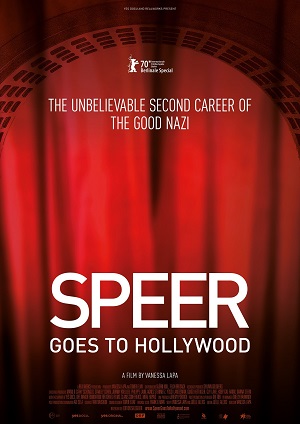
Speer Goes to Hollywood, directed by Vanessa Lapa, is an equally fascinating and terrifying documentary about the attempt of Albert Speer, the Minister of Armaments and War Production for the Nazis, to erase his war crimes through Inside the Third Reich, a memoir he wrote which made him look like a "good Nazi." Paramount Pictures considered adapting the book into a Hollywood film in the 1970's with Andrew Birkin as the screenwriter and Carol Reed as the director, but the screenplay was never greenlit. What this doc highlights, through the recordings of a conversation between Speer and Birkin, is that Speer is a master manipulator, gaslighter, self-centered and egotistical, much like Hitler himself. Carol Reed is on record doubting Speer's claims. Speer served as Hitler's architect who commanded over 12 million slave laborers during the Holocaust, so it would've been interesting if an expert/scholar were to talk about what Hannah Arendt, who wrote The Banality of Evil, might've thought about Speer. What's missing in Speer Goes to Hollywood is a broader scope of insights and more examination of the archival material that Lapa found. How and why did the book end up being published and popular in 1969? Watching Speer being sentenced in the Nuremberg Trials to only 20 years in prison instead of life in prison or getting a death sentence says a lot about how unjust the justice system is. What might've happened if Inside the Third Reich's screenplay were greenlit? This documentary raises many questions without taking the time to thoroughly answer them. It's not a very stylishly edited documentary, nor does it have to be, but it could've used more depth and perspectives on a very troubling and evil man who was never fully held accountable for his actions nor did he even acknowledge his actions or their consequences. Speer Goes to Hollywood would make a great double feature with the more profound documentary The Meaning of Hitler and the biopic Hannah Arendt. It opens at Film Forum via Realworks LTD. Antlers 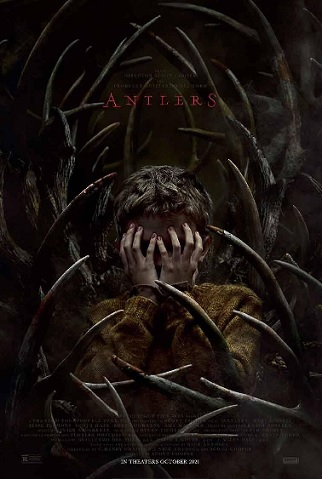 Julia Meadows (Keri Russell), an elementary school teacher, lives with her brother, Paul (Jesse Plemons), a sheriff, in a small Oregon town. When a local hunter, Warren Stokes (Graham Greene), spots a mutilated corpse with antlers nearby, Paul investigates the mysterious killing. Meanwhile, Julia tries to reach out to one of her students, Lucas Weaver (Jeremy T. Thomas), who shows troubling behavior and has a drug-addicted father, Frank (Scott Haze). The screenplay by C. Henry Chaisson, Nick Antosca and writer/director Scott Cooper takes its time to get to the meat of its story, the horror, and lacks surprises, but it does have some creepy and foreboding scenes. The horror element isn't as terrifying as the trauma that Lucas experiences at home or the traumatic past that Julia struggles to overcome. She reaches out to Lucas when she notices him drawing something very disturbing. The more she learns about Lucas's troubled life at home, the more it reveals dark secrets about him. Those dark secrets might have something to do with the mysterious murders taking place in the town. To be fair, it's obvious which direction Antlers is heading towards and what will happen in the third act, so it's not very scary per se like The Babadook, but it does take its time to develop its characters and their relationships so that by the time the more intense third act arrives, you at least care about Julia and Lucas somewhat. The payoff in the third act isn't quite as rewarding, though, as it could've been because it leaves very little to the imagination and can be seen from a mile away. Even the very last shot might cause you to roll your eyes. However, it feels less rushed and undercooked than the ending in Lamb. Antlers isn't quite as bold or bizarre as Lamb, but it does explore dark supernatural elements and folklore that's interesting. The best scenes are the ones the ones that generate psychological horror instead of showing the supernatural creature. The imagination, after all, is a very powerful tool. Fear of the unknown also can be powerful. So, Antlers would've been scarier if it put those two tools to use more often and if the filmmakers were to have trusted the audience's imagination more often, too. It also could've used more comic relief, i.e. Betty White in Lake Placid. The small town becomes a character in and of itself, and it helps that it's quiet and isolated. Admittedly, that's an overused horror cliche. Director Scott Cooper does add some atmosphere with the scenery and cinematography. When the gore arrives, it's quite unflinching, shocking and disgusting rather than scary. Horror films that rely on gore as shock value aren't usually very scary. Classics like Rosemary's Baby and The Shining still manage to be scary despite having very little gore. The same can be said about Pan's Labyrinth which is far superior to Antlers on all levels. Antlers would be the inferior B-movie in a double feature with Pan's Labyrinth. Even Werewolves Within is a more entertaining and scary creature feature that also takes place in a small town, but without relying on gore. Keri Russell is well-cast and handles the emotional side of her role convincingly as does the underrated Jesse Plemons, but the real scene-stealer here is Jeremy T. Thomas, who's as great as Haley Joel Osment is in The Sixth Sense. At a running time of 1 hour and 40 minutes, Antlers is occasionally creepy and atmospheric rather than scary. It doesn't trust the audience's imagination enough while relying too much on gore. 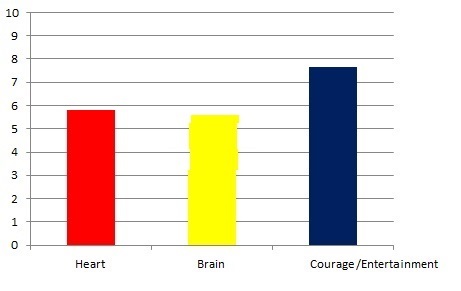 Cicada 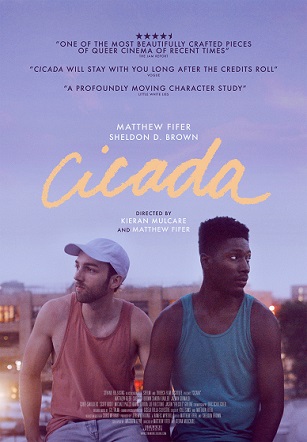 Ben (Matthew Fifer), a 20-something bisexual living in New York City, struggles to come to terms with sexual trauma from his childhood. He recently broke up with his girlfriend and immediately hits the fast line having one-night stands with both men and women. One of those me, Sam (Sheldon D. Brown), who's dealing with his own past trauma, blossoms into a serious relationship and has yet to come out to his father. Cicada is The screenplay by writer/director Matthew Fifer avoids melodrama and cheesiness, even in the "meet cute" scene when Ben flirts with Sam outside of a bookstore. Their flirtations, much like the rest of the film, feels organic and unstilted. Fifer has a knack for writing dialogue that sounds natural. He treats Ben and Sam like human beings as their flaws and psychological issues rise to the surface. Both of their issues aren't apparent right away, but they're hinted at initially and then gently revealed like in The Perks of Being a Wallflower. Cicada doesn't dwell on those darker themes too much, so it's not unflinching nor emotionally devastating like Mass which deals with emotional/psychological trauma head-on. Ben sees a therapist, Sophie (Cobie Smulders), who helps him to process that trauma. It's great and inspirational to know that Ben wants to heal from the trauma rather than to let it eat away at him. His relationship with Sam awakens something with him and they both affect each other in very poignant ways which won't be spoiled here. The ending feels slightly abrupt and leaves you wanting a little more, but at least there's some room left for the audience to use their imagination to fill in the gaps and to let the characters live on in their own mind. Not every film needs an ending the wraps everything up neatly and spoon-feeds the audience. Matthew Fifer and Sheldon D. Brown give raw, convincingly moving performances. They have palpable chemistry together which is a testament to both the performances as well as the screenplay. Also, they both bring warmth, charisma and authenticity to their roles. Writer/director Matthew Fifer and co-director Kieran Mulcare also do a great job with the sound designs, i.e. the sound of cicadas, a metaphor that's repeated a few times, but it works as a form of poetry. The beautiful cinematography is also worth mentioning, especially how it makes Washington Square Park look magical, breathtaking and deeply romantic. At a running time of 1 hour and 36 minutes, Cicada is a warm, tender and heartfelt love story. 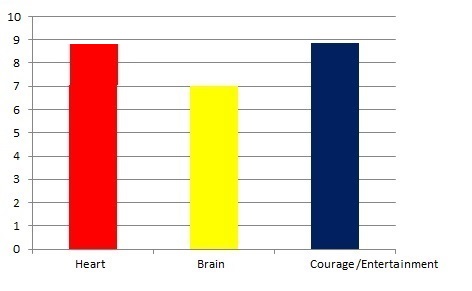 Heart of Champions 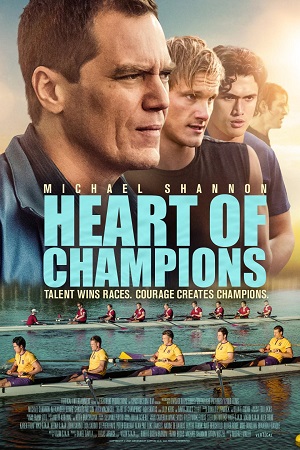 In 1999, Jack Murphy (Michael Shannon) became the new coach of an underdog Ivy League rowing team. The team members include Alex (Alexander Ludwig), Chris (Charles Melton) and his roommate, John (Alex MacNicoll). Alex has a controlling father (David James Elliott) and doesn't get along with John. Chris romances Nish (Ash Santos), and Alex recovers from alcoholism while dating Sara (Lilly Krug). The screenplay by Vojin Gjaja has too much drama and conflicts in the subplots going on concurrently. It's an underdog sports movie with subplots involving a conflict between Alex and his father, a conflict between the arrogant Alex and John, and then there's the cheesy, Nicholas Sparks-style romance between Alex and Sara. There are too many characters and not enough focus on any single one of them enough to bring them to life. Jack is the only one who comes closest to feeling like a lived-in character. It's too bad that the speeches that he gives suffer from preachiness that will make your eyes roll more when it should make you inspired instead. He doesn't exactly say that "there's no 'i" in 'team'," but he might as well that's the message that he preaches. Subtlety and nuance is not one of Heart of Champions's strengths, and it shows in the on-the-nose dialogue. This is the kind of movie where you can hear the wheels of the screenplay turning every step of the way. If you leave to go to the bathroom and come back, you'll probably be able to predict exactly what you've missed. Moreover, director Michael Mailer and writer Vojin Gjajin sugar coat the darker elements of the film as though they were afraid to explore the flaws of the characters, so they squander many opportunities to humanize them. For instance, Jack is haunted by a traumatic past, but the film barely scratches the surface of his emotional trauma. The third act, which could be predicted from a mile away, does not earn its uplift. Unfortunately, even the talented, charismatic Michael Shannon doesn't manage to rise above the mediocre, bland screenplay. The other actors are decent, but nothing exceptional nor do they have the charisma that Shannon has. If Heart of Champions were to have focused more on Jack's character and utilized more of Shannon's acting talents, perhaps it would've hit its beats more successfully. It's also too long at a running time of nearly 2 hours, and the rowing scenes aren't very exciting to boot. Ultimately, Heart of Champions is an overstuffed, undercooked and hackneyed underdog story that's too unfocused, preachy and cheesy. 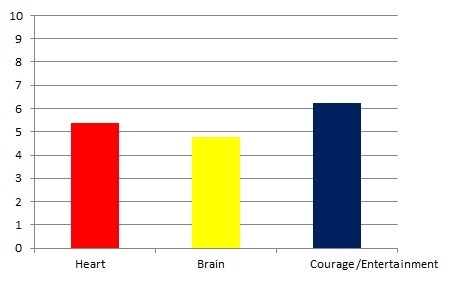 Last Night in Soho 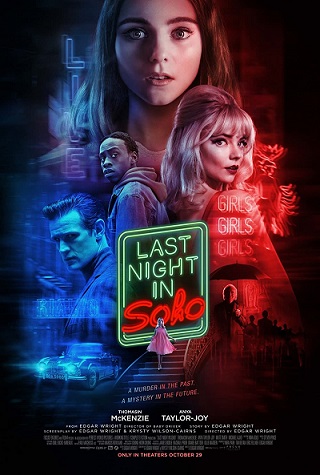 Eloise (Thomasin McKenzie), an aspiring fashion designer living with her grandmother, Peggy (Rita Tushingham), packs up her bags and moves from Cornwall to the West End of London where she attends a fashion school. Unhappy with her roommate at the school's dormitory, she finds an apartment to rent from an old landlady, Ms. Collins (Diana Rigg), who explicitly tells her never to bring any men over. She walks into a local pub where Ms. Tobin (Elizabeth Berrington) hires her as a bartender. That's where she meets a mysterious older man (Terrance Stamp). After she falls asleep in her bed, she magically wakes up in 1960's London where an aspiring singer, Sandie (Anya Taylor-Joy) sings at a nightclub and murder takes place which might involve a charming man, Jack (Matt Smith). The less you know about Last Night in Soho's plot, the better because it has suprises up its sleeve. Writer/director Edgar Wright and co-writer Krysty Wilson-Cairns don't delve into the narrative's sci-fi elements until roughly 15 or 20 minutes into the film as it takes its time to introduce the characters before it switches genres. There's no explanation of how the time travel actually works--there's no Delorean with a flux capacitor, just a bed, but it's more interesting to ponder why she transported back there and whether or not someone from the present might be the murderer from the past. That mystery is a large part of what makes the film so gripping to watch. Last Night in Soho gets very trippy at times and even veers into David Lynch territory, although it's not nearly as much of a mindfuck nor as ballsy or confusing as Mulholland Drive. It's much better than the recent Reminiscence which it shares a lot in common with in terms of its time-traveling concept, and it's a masterpiece compared to The Turning which also has a protagonist with a mentally ill mother who may or may not be mentally ill herself. Is what Eloise is going through all in her head or not? There are also shades of Black Swan and Suspiria which are also psychological horror films. Unfortunately, Last Night in Soho takes a small nosedive in the third act that suffers from clunky dialogue with over-explaining and contrived situations with too many coincidences. It's as though Wright were afraid to confuse the audience a little or to trust their critical thinking skills. Very little is left to the audience's interpretation. When it comes to the production values, Last Night in Soho excels with a stylish use of color, lighting, cinematography and, most memorably, the soundtrack. Its style becomes part of its substance more often than not, although it does use some songs that comment a little too literally about the narrative, i.e. the song when Eloise enters the 60's the second time. The well-chosen, talented cast help to elevate the film and breathe life into it. Anya Taylor-Joy does a great job of giving a somewhat campy performance. She's as delightful to watch here as she was in Emma.. Thomasin McKenzie is superb, just as expected, and handles the emotional and mental aspects of her role convincingly. Terrance Stamp, Diana Rigg and Rita Tushingham make the most out of their supporting roles. At a running time of 1 hour and 57 minutes, Last Night in Soho is a wildly entertaining, stylish and gripping ride. It's destined to become a cult classic. 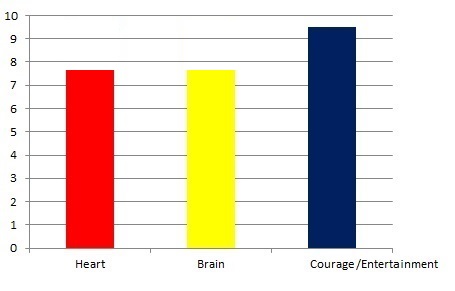 A Mouthful of Air 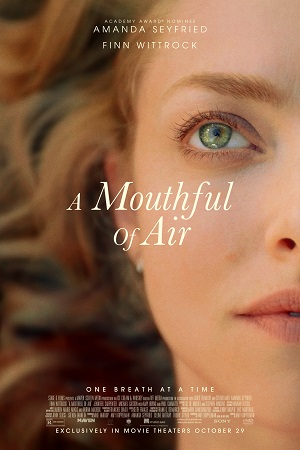 Julie (Amanda Seyfried), a children's book author, lives with her husband, Ethan (Finn Wittrock) and takes care of her infant son, Teddy. She suffers from postpartum depression and sees a therapist, Dr. Sylvester (Paul Giamatti), after a failed suicide attempt. Her battle with depression continues while she expects another child. Her mother, Bobbi (Amy Irving), tries to help Julie through her struggle. The screenplay by writer/director Amy Koppelman, based on her book, that bravely sheds light on a topic that's rarely depicted in Hollywood films: postpartum depression. It's neither an easy nor an uplifting subject matter, so it's a testament to Koppelman's strengths as a writer that sh handles it delicately without allowing the film to be too dark or heavy. There's probably a much darker, unflinching version of the film, but it wouldn't be as palatable or easy to sit through. Mass,for instance, is very unflinching as it explores the themes of suicide and grief head-on, but that's a double-edged sword because that makes it emotionally devestating, difficult to sit through and asks a lot from the audience. Koppelman focuses on Julie's emotional, psychological and mental state and how it affects her relationship with her loving mother and husband. By showing those sides of Julie, Koppelman humanizes her and allows the audience to emotionally connect as well as to empathize with her. Yes, the film has some heartbreaking scenes, but it also has moments of hope, joy and compassion which feels heartwarming and even uplifting. In other words, A Mouthful of Air has just the right balance of happy and sad moments. Fortunately, Koppelman avoids schmaltz, especially during the poignant scenes that could've easily become maudlin or turned the film into a Lifetime disease-of-the-week movie. She should also be commended for handling the third act gracefully without dwelling on the tragic scenes, much like how Hal Ashby handled Maude's death without dwelling on it in Harold and Maude. Amanda Seyfried gives a convincingly moving performance that breathes further life into the role of Julie. She's the movie's heart, mind and soul, and gives one of the best performances of her career. Tt's engrossing to watch her sink her teeth into Julie while those around her try their best to help her. Seyfried is an underrated, charismatic and immensely talented actress who deserves complex, deeply human roles for women like Julie. It's also great to see the always-reliable Amy Irving on screen. It's also worth mentioning that writer/director Amy Koppleman uses animation in a very creative and effective way that softens the edges of scenes that would've been much harder to watch if they weren't animated. At a running time of 1 hour and 45 minutes, A Mouthful of Air is genuinely heartfelt, tender and brave. 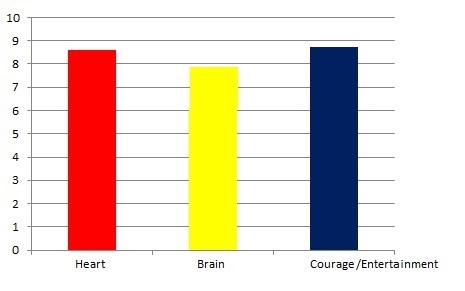 My Hero Academia: World Heroes' Mission  After the terrorist group, Humarise, led by Flect Turn (voice of Kazuya Nakai), launches a chemical attack, the heroes from around the world unite to stop the terrorist organization from committing further attacks. The heroes include Endeavor (voice of Tetsu Inada), Rody Soul (voice of Ryo Yoshizawa) and Deku (Daiki Yamashita), among many others. My Hero Academia: World Heroes' Mission is an action-packed, thrilling adventure that's fun for the most part, although it's not very suspenseful. The screenplay by Yôsuke Kuroda gives away the identity of the terrorists right away within the first few minutes which serve as exposition. Then there's more exposition as the heroes of the world join forces one by one to defeat Humarise. Even the precise motive of Humarise is revealed early on. The story isn't very complex or hard to follow even for those who haven't watched the previous My Hero Academia films. It's a very generic good vs. evil plot that doesn't really break new ground or have any surprises. There are many characters and picking one to root for isn't easy if you're not already familiar with them beforehand. What ensues is a mildly engaging action adventure that's not very thought-provoking or moving, nor does it try to be. For a far more intelligent and surprisingly moving action adventure, see The Laws of the Universe: The Age of Elohim. My Hero Academia: World Heroes' Mission is moderately diverting, but shallow. Perhaps it would be best to see it on a big screen with a crowd of other My Hero Academia fans; this one won't convert those of you who aren't fans. As an anime film, My Hero Academia: World Heroes' Mission has decent animation, although it's nothing exceptional. The pace moves quickly enough so that there's no scenes that drag. Director Kenji Nagasakin succeeds in entertaining the audience on a visceral level for the first hour. Even the scenes after the first hour which feel less thrilling don't become too dull, convoluted or exhausting like The Spine of Night does. At a running time of 1 hour and 44 minutes, My Hero Academia: World Heroes' Mission is mildly entertaining and thrilling, but ultimately shallow and forgettable. 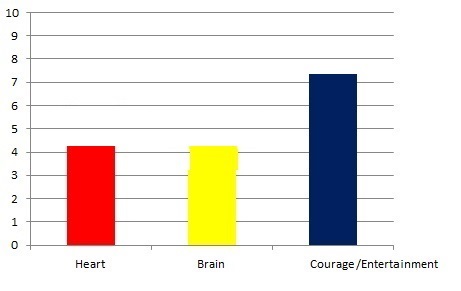 Only the Animals 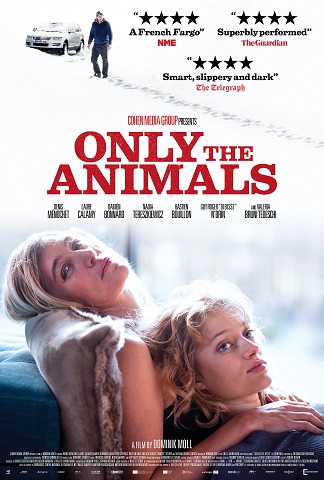 Evelyne Ducat (Valeria Bruni Tedeschi) goes missing in rural France during a blizzard. Her car is found abandoned. Any one of the local townspeople could be her killer or maybe someone from out of town. Is it Alice (Laure Calamy), an unhappily married woman who's having an affair with her client, Joseph (Damien Bonnard)? Is it Alice's husband, Michel (Denis Menochet)? Or maybe Alice (Nadia Tereszkiewicz)? Or perhaps it's Armand (Guy Roger 'Bibisse' N'Drin) a young man from the Ivory Coast of West Africa. Based on the novel by Colin Niel, Only the Animals plays like Murder on the Orient Express crossed with Rashomon. The screenplay by writer/director Dominik Moll and co-writer Gilles Marchand gradually turns up the suspense and intrigue as it reveals more and more information to the audience through the five suspects. In other words, the audience knows as much as the police does without being a step ahead or behind, so there are some twists to be found along the way for both the police as well as the audience. Those twists will not be spoiled here, though, but what can be safely stated is that with each perspective shows something new and surprising. Despite the fact that there are many characters and subplots, Only the Animals doesn't turn into an overwrought, overstuffed, undercooked crime thriller. Exposition isn't something that's easy to incorporate because it diminish the suspense if too much is explained to the audience too soon or it could be frustrating or contrived if it's too late. So, it's a testament to the skills of the screenwriters that they know how to incorporate in an intelligent way while trusting the audience's intelligence and emotions. Even as the twists pile on, Only the Animals remains grounded in realism and, most importantly, humanity, even though it does explore the dark side of it. To compare it to Fargo wouldn't be completely fair because, while it does use a snowy landscape as a metaphor like in Fargo, it doesn't have as much darkly funny, "Coen-esque" humor nor are the characters off-beat like some of the characters in Fargo. The third act, which could've fallen apart with a less sensitive screenplay, is effective as it avoids over-explaining and a major twist actually feels plausible. Kudos to the filmmakers for not relying on excessive violence or gore as a means of entertaining the audience. The shocks and surprises come from the narrative and characters, not from anything else. The performances all across the board are superb and natural which adds to the film's authenticity. Everyone gets a chance to shine and to show their acting strength thanks to the screenplay that provides them with a window into their heart, mind and soul. The emotional depth comes equally both from the screenplay and from the performances. Also, the filmmakers move the narrative along in a slow, but not too slow, pace that allows the audience to be absorbed by the narrative and to closely pay attention to the landscape which adds atmosphere and even seems poetic at times. So, the filmmakers trust the audience's patience as the audience anticipates more and more revelations. In that sense, writer/director Dominik Moll and co-writer Gilles Marchand grasp the meaning of suspense in the same way that Hitchcock does: it's all about the anticipation. Because Only the Animals feels so immersive on an emotional and intellectual level, you don't feel the weight of its lengthy running time. At a running time of nearly 2 hours, it's a spellbinding, intelligent and emotionally engrossing crime thriller with Hitchcockian suspense. 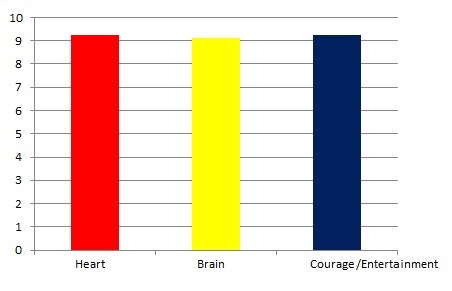 Peepal Tree 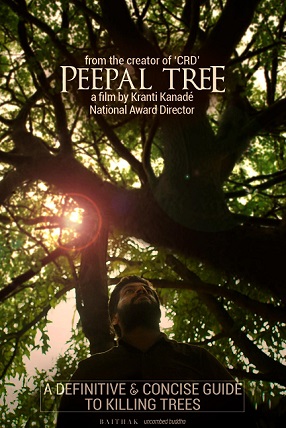 When the police cut down Peepal trees on his family's land, a man (Kranti Kanadé) and his wife (Eesha Thaker) India's legal system to try to stop them from cutting the sacred trees. Attaining justice and holding the police accountable for their actions turns out to be a very difficult and complex task, so he seeks the aid of a tree activist (Vinay Sharma). Peepal Tree is a simple story that becomes increasingly complex. Writer/director Kranti Kanadé keeps the film lean and cuts right to the chase by skipping the first act. Within the first minute, the peepal trees have already been cut down and the man, who remains nameless, desperately tries to call the authorities to try to put an end to it. There's very little exposition; you don't even hear the word "Peepal" used to describe the tree until later on, but what's palpable and clear from the get-go is how much those trees and nature itself means to the man and his family. Perhaps the man is nameless because he represents the ordinary person or, more specifically, the audience. Admittedly, some of the dialogue is a bit on-the-nose, and there aren't many scenes showing the man interacting with his family about issues other than the trees. More backstory or intimate moments would've made the film feel less procedural. That said, the filmmaker does do a great job of keeping the audience emotionally engrossing and rooting for the unnamed man. He's like David going up against Goliath. One of the characters observes early on that the government is for 10% of the people and not for the rest---that's an observation that's relatable to the issues with the U.S. government and the 1%. What's not entirely clear, though, is how wealthy the man's family is; their house does make them look like they're middle class at least. The poor deserve the same rights as anyone else, and a healthy country's GDP should rise with the poor. Once the man meets the tree activist, that's when the film becomes slightly more intriguing as the activist teaches the man, as well as the audience, about India's laws and past legal battles that provide the man with a glimmer of hope for justice. Director Kranti Kanadé does a great job of capturing both the beauty as well as the poetry of nature through the cinematography. Images speak louder than words. Poetry, after all, is a form of protest, and it's crystal clear what Kanadé is protesting against in Peepal Tree. He's protesting against environmental damage. Plants, air, water, trees, animals and humans are all part of the ecosystem and exist symbiotically. The essence and sacredness of that symbiotic relationship between man and nature is evident in Peepal true, especially through the passion, conviction and perseverance of the unnamed man. Kanadé is protesting not only for the right to preserve and to protect the environment, but also the right to a democracy. The search for justice as well as for the truth is fundamentally about the search for democracy. That's what Peepal Tree is truly about and what makes it universal. When it comes to the camera work, there's a lot of handheld cinematography which makes the film feel more intimate and similar to a documentary. At a running time of 1 hour and 21 minutes, Peepal Tree is an eye-opening, genuinely heartfelt and vital wake-up call about a universal environmental rights issue. 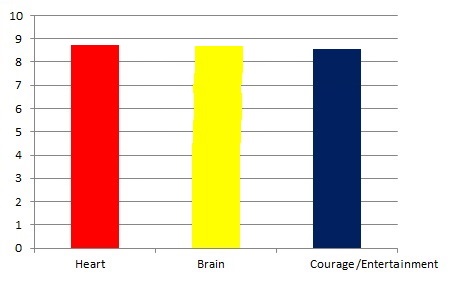 The Souvenir: Part II 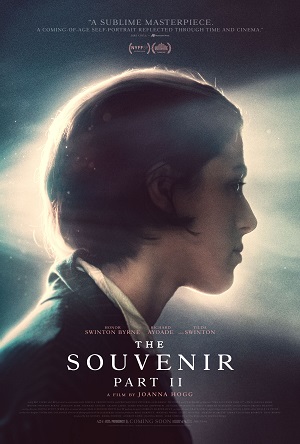 Julie (Honor Swinton Byrne), a film student, is still grieving from the suicide of her boyfriend, Anthony (Tom Burke). She decides to write and direct a graduate film about her relationship with him. Her mother, Rosalind (Tilda Swinton), agrees to cut her a check to finance her film. The production doesn't go as smoothly as Julie expected while she seeks advice from her friend, Patrick (Richard Ayoade), and sees a therapist (Gail Ferguson) to deal with her grief. The Souvenir: Part II is a vast improvement on The Souvenir: Part I. The screenplay by writer/director Joanna Hogg has more wit, humor and warmth while becoming more and more thought-provoking. Julie's student film mirrors her life, so when the actors question the relationship between the couple, they're essentially questioning Julie's relationship and compelling her to ask those very same questions to herself about their relationship. Hogg does a great job of providing a window into the heart, mind and soul of Julie. You don't have to be a filmmaker to understand Julie's struggles with grief or what it feels like for her to ask her wealthy, cold mother for money to fund her film. The Souvenir: Part II becomes most interesting as the lines between reality and fiction start blurring, much like in the recent film Bergman's Island which is also a cerebral film about filmmaking, relationships and the parallels between life and art. Some of the humor, though, will be funnier and most appreciated to those who have experience in filmmaking because there are some inside jokes about filmmaking. Fortunately, Hogg keeps the film feeling profoundly human and moving. Julie goes through an emotional journey which the audience gets to observe intimately like voyeurs peeking behind a curtain. Joanna Hogg clearly grasps not only filmmaking and what filmmakers go through, but, most importantly, human nature. Julie's emotional journey wouldn't feel so true-to-life if it weren't for Honor Swinton Byrne's radiant and moving performance. She's charismatic and captivating to watch from start to finish. She should be commended for showing emotional vulnerability in front of the camera which means that she's both brave and emotionally generous. Just like in The Souvenir: Part I, the production design looks exquisite and stylish. The pacing moves unhurriedly and the editing feels smooth. There's also a wonderful soundtrack and terrific cinematography. Hogg makes use of different film grains too which adds more richness. The visual style becomes part of the film's substance which is not an easy feat to achieve. At a running of 1 hour and 46 minutes, The Souvenir: Part II is wise, heartfelt, witty and profoundly human. It would pair well in a double feature with Bergman's Island. 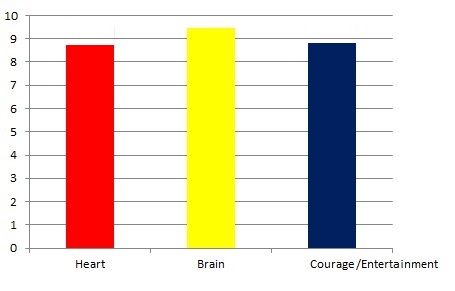 The Spine of Night 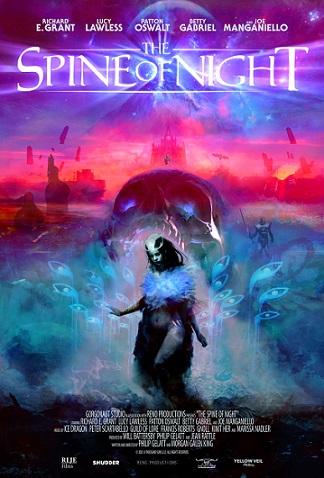 Tzod (voice of Lucy Lawless) wants to get ahold of a magical blue flower from The Guardian (Richard E. Grant). The flower can be used to destroy the world, which is precisely what Ghal-Sur (Jordan Douglas Smith), a sorcerer, wants to do. Up until that moment, she Tzod crossed paths with Lord Pyrantin (Patton Oswalt) as well as his sidekick Mongrel (Joe Manganiello). The Spine of Night is a mildly engaging animated film that's quickly becomes tedious and monotonous. The screenplay by co-writers/directors Morgan Galen King and Philip Gelatt tells a simple story that resorts to many conventions, i.e. there's a MacGuffin and the villain wants to destroy the world. They try to add complexity by presenting the narrative non-linear, but it makes it unnecessarily convoluted while failing to mask the wafer-thin plot. None of the characters are memorable or worth rooting for, even Tzod, and the same can be said about the villains. There's very little wit or comic relief to be found, so the film eventually runs out of steam as it becomes increasingly repetitive. Animated nudity and blood isn't really that big of a deal; the cult classic Heavy Metal combines nudity and graphic violence while doing a better job at being bold, wildly imaginative and entertaining. That said, it's refreshing to hear Patton Oswald's voice in an animated movie that's dark and nothing at all like the charming, wise, funny and exhilarating Ratatouille. The hand-drawn animation in The Spine of Night along with its unflinching nudity and violence is what makes it stand out, although not nearly enough to make it rise above its dull screenplay. It's ironic that despite many action scenes, very little of it actually feels thrilling on a palpable level. Even the animation itself becomes less and less dazzling and increasingly nauseating The Spine of Night could've been a guilty pleasure, but it falls short of that because of its uninspired and witless screenplay. At a running time of 1 hour and 33 minutes, which feels more like 2 hours, it's a tedious, dull and unnecessarily convoluted bore that's more headache-inducing than thrilling or exhilarating. 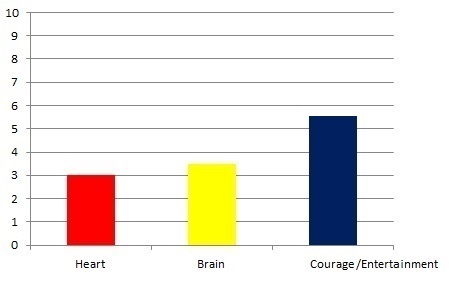 Violet 
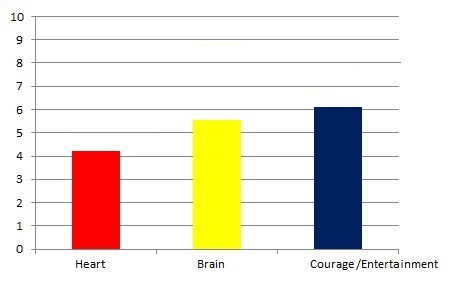 |